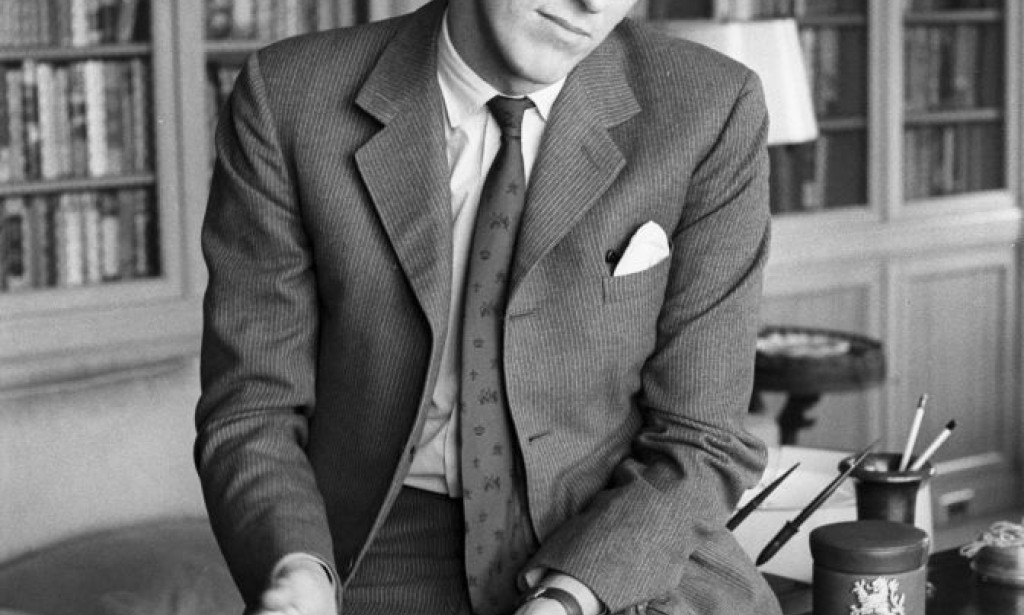 When Peter Matthiessen’s name comes up in conjunction with The Paris Review, two facts are sure to emerge. The first is that Matthiessen was one of the magazine’s founders, and that his enchantingly shabby Paris apartment provided a bumptious gathering place in its earliest days. The second is that he was, at the time, an undercover CIA operative, and that the creation of the magazine was somehow wrapped up in his spycraft. The New York Times revealed Matthiessen’s CIA affiliation in a bombshell 1977 story with the headline “Worldwide Propaganda Network Built by the C.I.A,” which examined dozens of publications and cultural organizations that had been secretly “owned, subsidized or influenced in some way by the C.I.A. over the past three decades.” Matthiessen’s connection rated only three brief sentences buried at the center of what he called a “long gray article”; the reporter, John Crewdson, noted that there was no evidence the CIA had used the writer “to influence the Paris Review.” Even so, Matthiessen spent the rest of his life facing questions about his role. He had left the agency in 1953, after about two years, but he never divulged the details of his work for the organization, which remain unclear even now, eleven years after his death.Some have speculated that the Review itself received CIA support as part of the agency’s broader effort to prop up pro-Western art and literature. At the peak of its influence, in the fifties and sixties, the CIA fronted money to support a broad array of cultural production, from the seemingly innocuous to the expressly anti-communist. Among many other ventures, it had its hand in abstract-expressionist painting, jazz, Radio Free Asia, literary magazines, academic books on Finland and East Germany, a Roman newspaper, and an animated film adaptation of Animal Farm. While some artists were aware of the source of their funding, many were not. Given that The Paris Review portrayed itself as studiously apolitical—recall William Styron’s famous anti-manifesto in the first issue, fashioning it as a home for “the non-drumbeaters and non-axe-grinders”—Matthiessen’s CIA involvement has raised questions and eyebrows since its revelation in the seventies.
When Peter Matthiessen’s name comes up in conjunction with The Paris Review, two facts are sure to emerge. The first is that Matthiessen was one of the magazine’s founders, and that his enchantingly shabby Paris apartment provided a bumptious gathering place in its earliest days. The second is that he was, at the time, an undercover CIA operative, and that the creation of the magazine was somehow wrapped up in his spycraft. The New York Times revealed Matthiessen’s CIA affiliation in a bombshell 1977 story with the headline “Worldwide Propaganda Network Built by the C.I.A,” which examined dozens of publications and cultural organizations that had been secretly “owned, subsidized or influenced in some way by the C.I.A. over the past three decades.” Matthiessen’s connection rated only three brief sentences buried at the center of what he called a “long gray article”; the reporter, John Crewdson, noted that there was no evidence the CIA had used the writer “to influence the Paris Review.” Even so, Matthiessen spent the rest of his life facing questions about his role. He had left the agency in 1953, after about two years, but he never divulged the details of his work for the organization, which remain unclear even now, eleven years after his death.Some have speculated that the Review itself received CIA support as part of the agency’s broader effort to prop up pro-Western art and literature. At the peak of its influence, in the fifties and sixties, the CIA fronted money to support a broad array of cultural production, from the seemingly innocuous to the expressly anti-communist. Among many other ventures, it had its hand in abstract-expressionist painting, jazz, Radio Free Asia, literary magazines, academic books on Finland and East Germany, a Roman newspaper, and an animated film adaptation of Animal Farm. While some artists were aware of the source of their funding, many were not. Given that The Paris Review portrayed itself as studiously apolitical—recall William Styron’s famous anti-manifesto in the first issue, fashioning it as a home for “the non-drumbeaters and non-axe-grinders”—Matthiessen’s CIA involvement has raised questions and eyebrows since its revelation in the seventies.



You must be logged in to post a comment.